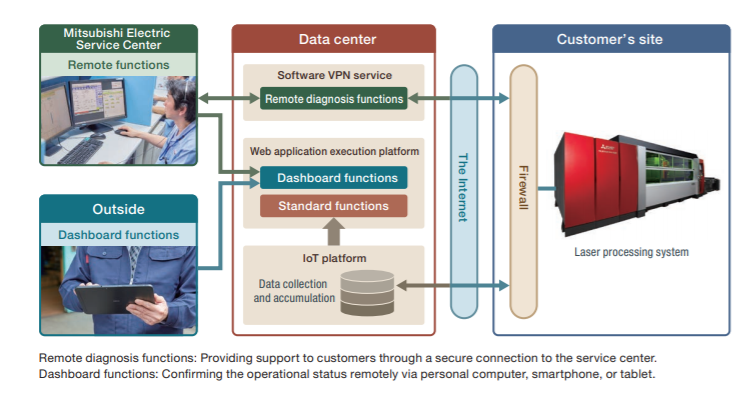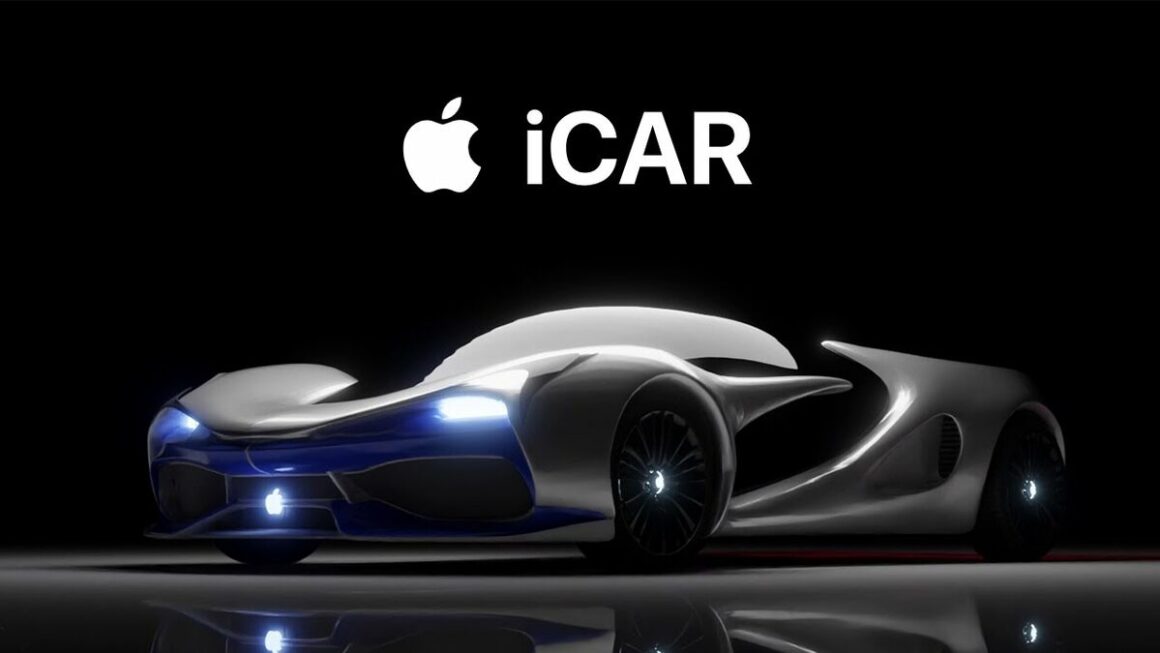Mitsubishi Electric Company has extended a wide variety of services enterprises, including Electricity and Electrical Systems, Manufacturing Systems for Automation, Information and Communication. The company also has a wide variety of world-class goods and technical facilities in the FA (Factory Automation) and e-F@ctory has been promoted since 2003. The objective is to reduce growth, production, and maintenance costs by the integration of FA technologies with IT and continuous distribution support for improving production processes.
As the e-F@ctory, Mitsubishi Electric Corporation has now begun the IoT development of the laser processing system, their core product.
Challenges
The leader of the e-F@ctory project, Masayuki Yamamoto, commented on the potential effect of IoT in this operation: “The gap between the consumption and supply has been reduced to a great extent through advances in IT. While consumers used to have only a sense of the value of tangible aspects of the products they bought, these days, they are placing more importance on intangible aspects. To cope with this changing sense of values, the supply side, i.e., the producers, have to be able to create a variety of products in variable quantities, while maintaining levels of quality that are optimized for the demand. Moreover, new products must reach the market quickly; I foresee that by using IoT we can make not only the engineering chain more responsive but also the supply chain more responsive.”
“The sole purpose of using IoT in the laser processing system is to improve the operating rate. The company wants to accomplish this by discovering any abnormality in real time and quickly remedying
it. Moreover, by obtaining various processing information and giving advice on processing, Mitsubishi can help customers to realize new value. The various data obtained through IoT is an important asset
for customers. A secure connection environment is needed to handle such important data. Further, our laser processing systems are operated by our customers worldwide, so we need to be able to
provide support anywhere in the world.”
Hiroko Takada, former project manager at Mitsubishi Electric Corporation Nagoya Works, describes the effect that secure communications would have. “Customers wanted to check the production status at any time and carry out optimal production management. However, the available information was never enough. Further, when problems occurred, the service staff who received the call needed to visit the site to understand the details of the situation. This resulted in delays in remedying the situation. I think that such delays can be reduced or avoided by making secure connections through mobile devices.”
Also Read: Case Study | Otis Elevators – Accelerating Business Transformation with IT
Solution
Mitsubishi Electric Corporation has chosen NEC as its partner. It would make it easier to achieve the above objectives. Yamamoto commented on the outcome of the partnership: “NEC provided us with a safe network environment that includes cloud. We can comfortably extend our relationship through this
company.”
Takada was also satisfied with the results: “NEC’s IoT solutions helped us to incorporate a dashboard that helps us to understand the production status in quantitative terms and in actualizing remote
diagnosis that can be conducted by the service staff. There were a lot of issues in the course of development. However, we created a one-stop service with flexible support from NEC engineers and
NEC’s secure IoT solutions.”

Results
Mitsubishi Electric Corporation launched a laser processing system cloud service called “iQ Care Remote4U.” The benefits that this service brought were quickly evident to its users. In particular, Takada stated that companies using the new laser processing system are impressed with its improved operating rate and productivity. “It meets the growing demand for shorter delivery times and lower costs. There has been a reduction in the duration of emergency stoppages, especially at night. The operating rate has improved, and operations are quickly restored if there is a stoppage.”
Yamamoto commented that Mitsubishi Electric Corporation is considering using NEC’s IoT solutions in its future projects and explained how IoT helps its operations. “We aim to improve production efficiency and to create new value in harmony with the different business styles of our customers. With this service, we have come one step closer to realizing the ideal solution.” “Without making changes in the essential nature of the industry, IoT can help manufacturers evolve and keep pace in the market by releasing products quicker and by meeting diverse needs; it creates more possibilities for new business.”
NEC aims to develop next-generation manufacturing solutions under the banner of “NEC Industrial IoT” and will continue to contribute to the development of the e-F@ctory.



